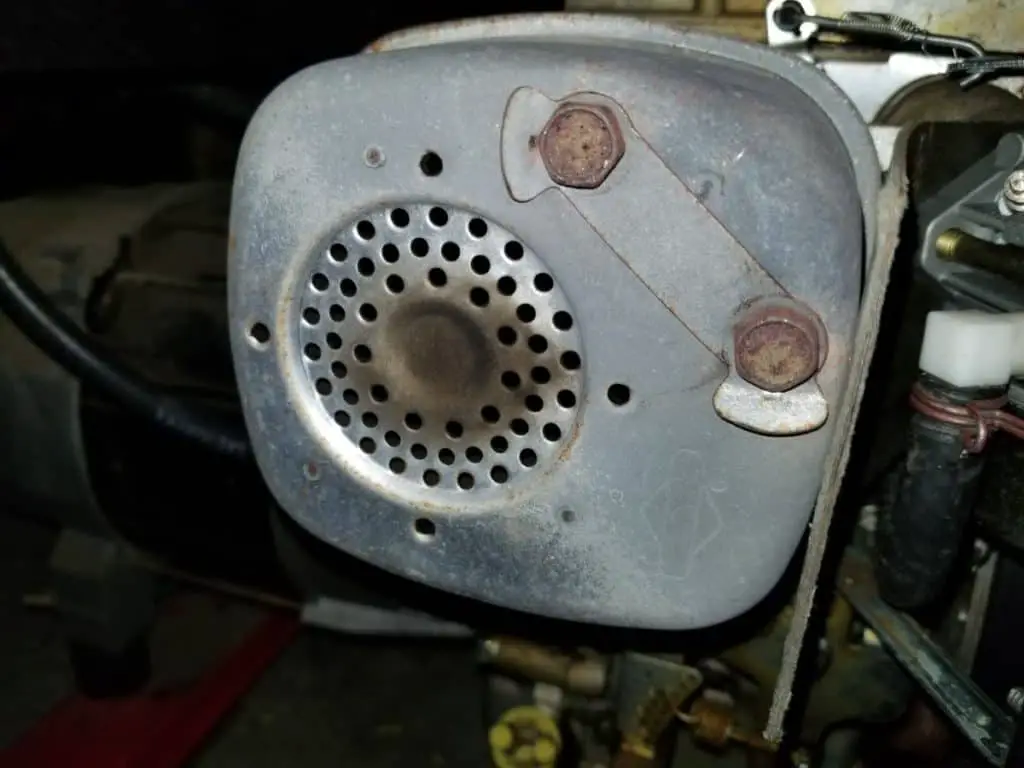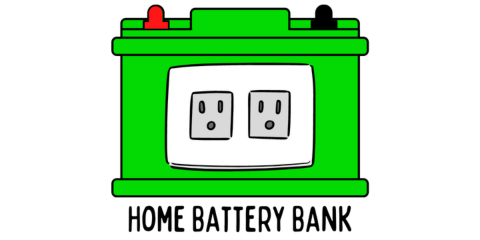If you keep hearing a loud pop from your exhaust every time you turn off your generator, then you should know that this is almost always fixable with just a little behavior modification on your end.
A generator will backfire after being turned off at high RPMs when an air-fuel mix is pumped into the combustion chamber by the residual momentum of the piston and spontaneously combusts. Bringing the generator down to idle speeds for a minute before turning it off will generally solve this problem.
Just to be clear for anyone who is technical about the issue, there is definitely a difference between a true “backfire” which originates from the carburetor and an “afterfire” which originates in the exhaust.
For the purposes of this article, and since “backfire” is a commonly used term to describe any loud popping sound coming from an engine, I’m going to continue to use the word backfire.
Why a Generator Backfires After Being Shut Off
| Symptom | Reason | Fix |
|---|---|---|
| Backfire after being turned off | Unburnt air-fuel mix pumped into hot exhaust manifold due to engine momentum and spontaneously combusts | Allow generator to run at idle speed for a minute before turning off |
Why Does My Generator Backfire When I Turn it Off?
A generator backfires (technically an afterfire) when a generator engine is turned off abruptly at a high RPM.
The momentum of the engine, even though it’s missing a spark, continues for a few moments after shut-off and continues to function as a pump by pulling in new air-fuel mix from the carburetor and expelling it into the exhaust when done.
The only difference in this case is that with the spark missing, the air-fuel mix is expelled into the exhaust in its original state, and not as “exhaust”.
You might remember at some safety training at your place of employment that there is a triangle when it comes to fire. Fire needs an ignition source, fuel, and air.
When this air-fuel mist is pumped into the exhaust, the walls of the exhaust are piping hot and often times hot enough to spontaneously combust the mist and vapors that have just been pumped into them.
When they spontaneously combust, a mini-explosion occurs within your exhaust and the result is either a loud bang or pop, or there may even be a flash of flame.

Generally, this is not too harmful to your generator unless it is excessively loud and violent in which case it may damage your exhaust manifold. Usually it’s just that way to scare your neighbor or anybody with in 20 yd of your machine.
In the rest of this article I’ll clear up any of the further details about what causes it to happen as far as your behavior, and how to prevent it going forward.
What Causes it to Happen & How to Prevent
Your behavior has almost everything to do with backfire occurring after you turn off your generator.
The issue happens when a generator is running at a high rate of speed and is then turned off with the engine shut off switch.
The faster your engine is running, the more momentum it will have and will continue to cycle even without a spark after you turn off the engine shut off switch.
You can easily prevent this from happening most of the time by allowing your engine to return to a state of idle before you shut it off for at least a minute. This will allow things to cool slightly and your piston won’t have as much momentum behind it and will be less likely to carry the air-fuel mix in its original state into the exhaust after you turn it off.
Fuel additives, the type of fuel, ambient temperatures, and a rich air fuel mix due to your carburetors settings can also contribute to you hearing a loud bang after turning off your engine.
Try to use the appropriate fuel for your generator and an ethanol-free blend if possible. If you use a fuel stabilizer such as SeaFoam, only use the recommended amount per gallon.
If you are unsure if your engine is running rich or lean I have a video down below where you can hear the difference for yourself and if you need help cleaning out your carburetor I also have an article in the video below as well that you can check out.
What’s the Best Way to Turn Off a Generator
If you’re just turning off your engine shut off switch so that you can refuel your generator or just to stop it for a short period of time then there’s no problem with that once your engine is at idle.
However, turning off your engine shut-off switch and then storing your generator for months is not the appropriate way the store your generator and more than likely you’re going have issues the next time you go to run it.
Ideally, you should either drain all of the fuel out of it or do what I do which is shut off the fuel shut-off switch (petcock) while the engine is running and allow the engine to use up the residual fuel that remains in the fuel lines and the carburetor bowl.
Once the engine has come to a stall after a few minutes you can pull the recoil cord a few more times to work out any remaining gasoline that might not have been burnt up and this will flush everything out of the system.
This prevents gasoline from turning into varnish or sludge within your fuel lines and carburetor and it also relaxes the float needle valve which has a piece of rubber either on the needle or on the seat that can become deformed by constant pressure if you leave fuel inside of your carburetor.
I also have a video below showing this process step-by-step.

